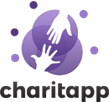Future-Proofing Your Charity: How Custom Software Can Help You Adapt and Grow in a Rapidly Changing Landscape
-
Table of Contents
- Introduction
- The Benefits of Investing in Custom Software for Future-Proofing Your Charity
- How Custom Software Can Help Your Charity Adapt to Rapidly Changing Trends
- The Role of Automation in Future-Proofing Your Charity
- How to Leverage Custom Software to Increase Efficiency and Reduce Costs
- The Impact of Custom Software on Your Charity’s Ability to Adapt to New Technologies
- How to Use Custom Software to Stay Ahead of the Curve in a Rapidly Changing Landscape
- Conclusion
“Future-Proof Your Charity: Unlock Growth with Custom Software Solutions for a Changing World.”
Introduction
The charity sector is facing unprecedented challenges in the face of a rapidly changing landscape. With the rise of digital technology, charities must find ways to stay ahead of the curve and remain competitive. Custom software can be a powerful tool for charities to future-proof their operations and ensure they remain relevant in the digital age. By leveraging custom software, charities can adapt to changing trends, increase efficiency, and better serve their beneficiaries. This guide will explore the benefits of custom software for charities and how it can help them stay ahead of the competition.
The Benefits of Investing in Custom Software for Future-Proofing Your Charity

As a charity, it is essential to ensure that your organization is future-proofed and able to meet the changing needs of your beneficiaries. Investing in custom software can be a great way to ensure that your charity is well-equipped to meet the challenges of the future.
Custom software is designed to meet the specific needs of your charity, allowing you to tailor the software to your exact requirements. This means that you can ensure that the software is optimized for your organization’s specific needs, allowing you to maximize efficiency and minimize costs.
Custom software can also help to ensure that your charity is able to keep up with the latest technological advances. As technology continues to evolve, custom software can be updated to ensure that your charity is able to take advantage of the latest developments. This can help to ensure that your charity is able to remain competitive and relevant in the future.
Custom software can also help to ensure that your charity is able to remain secure. As technology continues to evolve, so too do the threats posed by cyber criminals. Custom software can be designed to ensure that your charity is protected from the latest threats, allowing you to keep your data and systems secure.
Finally, custom software can help to ensure that your charity is able to remain compliant with the latest regulations. As regulations continue to evolve, custom software can be updated to ensure that your charity is able to remain compliant. This can help to ensure that your charity is able to remain in good standing with the relevant authorities.
In conclusion, investing in custom software can be a great way to ensure that your charity is well-equipped to meet the challenges of the future. Custom software can help to ensure that your charity is able to remain competitive, secure, and compliant with the latest regulations. Investing in custom software can be a great way to ensure that your charity is future-proofed and able to meet the changing needs of your beneficiaries.
How Custom Software Can Help Your Charity Adapt to Rapidly Changing Trends
As the world continues to rapidly evolve, charities must be able to adapt to changing trends in order to remain competitive and successful. Custom software can be a powerful tool for charities to use in order to stay ahead of the curve and remain relevant in a constantly changing landscape.
Custom software can help charities to better understand their target audience and the needs of their donors. By leveraging data and analytics, charities can gain valuable insights into the behaviors and preferences of their donors, allowing them to tailor their services and offerings to better meet their needs. This can help charities to better engage with their donors and build stronger relationships.
Custom software can also help charities to streamline their operations and increase efficiency. By automating mundane tasks and streamlining processes, charities can save time and resources, allowing them to focus on more important tasks. This can help charities to better manage their resources and maximize their impact.
Custom software can also help charities to better manage their finances. By leveraging data and analytics, charities can gain valuable insights into their financial performance, allowing them to make more informed decisions and better manage their budgets. This can help charities to better allocate their resources and ensure that their funds are being used in the most effective way possible.
Finally, custom software can help charities to better engage with their donors and build stronger relationships. By leveraging data and analytics, charities can gain valuable insights into the behaviors and preferences of their donors, allowing them to tailor their services and offerings to better meet their needs. This can help charities to better engage with their donors and build stronger relationships.
In conclusion, custom software can be a powerful tool for charities to use in order to stay ahead of the curve and remain relevant in a constantly changing landscape. By leveraging data and analytics, charities can gain valuable insights into their target audience and the needs of their donors, streamline their operations, manage their finances, and better engage with their donors. This can help charities to maximize their impact and ensure that their funds are being used in the most effective way possible.
The Role of Automation in Future-Proofing Your Charity
As the world continues to evolve, charities must stay ahead of the curve in order to remain competitive and successful. Automation is an essential tool for future-proofing charities, allowing them to streamline processes, reduce costs, and increase efficiency.
Automation can help charities to reduce the amount of time and resources spent on mundane tasks, freeing up staff to focus on more important activities. Automation can also help to reduce errors and improve accuracy, as well as reduce the need for manual data entry. Automation can also help to improve customer service, as automated systems can respond quickly and accurately to customer inquiries.
Automation can also help charities to increase their reach and impact. Automated systems can help to identify potential donors and supporters, as well as track donations and other forms of support. Automation can also help to streamline marketing efforts, allowing charities to target specific audiences and maximize their impact.
Finally, automation can help charities to stay ahead of the competition. Automated systems can help to identify trends and opportunities, allowing charities to stay ahead of the curve and remain competitive. Automation can also help to reduce costs, allowing charities to maximize their resources and increase their impact.
In short, automation is an essential tool for future-proofing charities. Automation can help charities to reduce costs, increase efficiency, and maximize their impact. Automation can also help charities to stay ahead of the competition and remain competitive. By leveraging automation, charities can ensure that they remain successful and competitive in the future.
How to Leverage Custom Software to Increase Efficiency and Reduce Costs
Custom software can be a powerful tool for businesses looking to increase efficiency and reduce costs. By leveraging custom software, businesses can streamline processes, automate tasks, and improve data accuracy.
Custom software can be tailored to the specific needs of a business, allowing it to be more efficient and cost-effective. By automating manual processes, businesses can reduce the amount of time and resources spent on mundane tasks. Automation also helps to reduce errors and improve data accuracy. Additionally, custom software can be designed to integrate with existing systems, allowing businesses to leverage existing data and resources.
Custom software can also help businesses reduce costs. By streamlining processes, businesses can reduce the amount of time and resources spent on tasks. Automation can also help to reduce labor costs, as businesses can reduce the number of employees needed to complete tasks. Additionally, custom software can help businesses reduce costs associated with purchasing and maintaining software licenses.
Finally, custom software can help businesses increase efficiency by providing better visibility into operations. By providing real-time data and analytics, businesses can gain insights into their operations and make informed decisions. This can help businesses identify areas of improvement and optimize processes.
Overall, custom software can be a powerful tool for businesses looking to increase efficiency and reduce costs. By leveraging custom software, businesses can streamline processes, automate tasks, and improve data accuracy. Additionally, custom software can help businesses reduce costs associated with purchasing and maintaining software licenses. Finally, custom software can provide better visibility into operations, allowing businesses to identify areas of improvement and optimize processes.
The Impact of Custom Software on Your Charity’s Ability to Adapt to New Technologies
Custom software can have a significant impact on a charity’s ability to adapt to new technologies. By creating a tailored solution that meets the specific needs of the organization, custom software can provide a platform for the charity to quickly and easily integrate new technologies into their operations.
Custom software can be designed to be flexible and scalable, allowing the charity to easily add new features and capabilities as needed. This can help the charity stay ahead of the curve when it comes to new technologies, as they can quickly and easily integrate them into their existing systems. Additionally, custom software can be designed to be user-friendly, making it easier for staff to learn and use new technologies.
Custom software can also help the charity save time and money. By creating a tailored solution that meets the specific needs of the organization, the charity can avoid the cost and time associated with purchasing and implementing off-the-shelf software. Additionally, custom software can be designed to be more secure than off-the-shelf solutions, helping to protect the charity’s data and resources.
Finally, custom software can help the charity stay competitive in the marketplace. By creating a tailored solution that meets the specific needs of the organization, the charity can ensure that their operations are up-to-date and efficient. This can help the charity stay ahead of the competition and remain competitive in the marketplace.
In conclusion, custom software can have a significant impact on a charity’s ability to adapt to new technologies. By creating a tailored solution that meets the specific needs of the organization, the charity can quickly and easily integrate new technologies into their operations, saving time and money while staying competitive in the marketplace.
How to Use Custom Software to Stay Ahead of the Curve in a Rapidly Changing Landscape
In today’s rapidly changing landscape, staying ahead of the curve requires businesses to be agile and adaptive. Custom software can be a powerful tool to help businesses stay ahead of the competition and remain competitive.
Custom software is designed to meet the specific needs of a business. It can be tailored to the unique requirements of a business, allowing it to be more efficient and effective. Custom software can also be used to automate processes, streamline operations, and improve customer service.
When considering custom software, it is important to consider the long-term goals of the business. It is important to understand the current needs of the business and how custom software can help meet those needs. It is also important to consider the future needs of the business and how custom software can help meet those needs.
Once the needs of the business have been identified, it is important to find a software development partner that can provide the necessary expertise and resources to develop the custom software. It is important to ensure that the software development partner has the necessary experience and expertise to develop the custom software.
Once the software development partner has been identified, it is important to develop a plan for the development of the custom software. This plan should include the timeline for the development, the budget for the development, and the resources needed to complete the development.
Once the plan has been developed, it is important to ensure that the custom software is tested and validated. This testing and validation process should include user acceptance testing, system testing, and performance testing. This testing and validation process should ensure that the custom software meets the needs of the business and is able to meet the changing needs of the business in the future.
Finally, it is important to ensure that the custom software is properly maintained and updated. This maintenance and updating process should include regular updates to the software, bug fixes, and security patches. This maintenance and updating process should ensure that the custom software remains up-to-date and secure.
By using custom software, businesses can stay ahead of the curve in a rapidly changing landscape. Custom software can be tailored to the specific needs of a business, allowing it to be more efficient and effective. It can also be used to automate processes, streamline operations, and improve customer service. By finding a software development partner and developing a plan for the development of the custom software, businesses can ensure that the custom software meets their needs and is able to meet the changing needs of the business in the future.
Conclusion
Future-proofing your charity with custom software can help you stay ahead of the curve in a rapidly changing landscape. Custom software can help you streamline processes, increase efficiency, and improve the overall user experience. It can also help you stay competitive in the market, as well as provide you with the flexibility to adapt to changing trends and technologies. With custom software, your charity can remain agile and responsive to the needs of your stakeholders, while also ensuring that your organization is well-positioned to take advantage of new opportunities.

